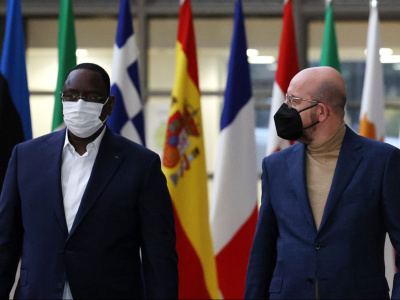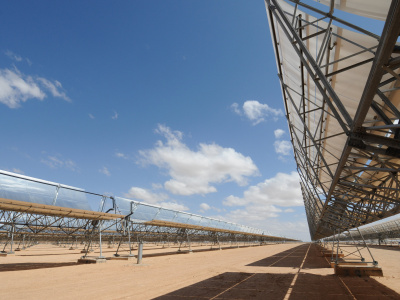
The geopolitics of African renewable energy: European and Chinese investments in a global green transition
Renewable energy is a critical ingredient of the external dimension of the European Green Deal. That is why the EU is also looking to market its renewable energy technology in Africa and beyond – but so do the US and China. Alfonso Medinilla, Katja Sergejeff and Ennatu Domingo examine a growing perception of competition for the African renewable energy market and a potential ‘geopolitical competition’ narrative in EU's foreign policy.
Green transition in the EU, US and China, fuel a growing perception of competition for the African renewable energy market, and initiatives like the EU’s Global Gateway are explicitly presented as an alternative to Chinese foreign infrastructure finance.
Summary
For Europe, renewable energy is more than a way to reduce greenhouse gas emissions at home. It is a critical ingredient of the external dimension of the European Green Deal. Green transition in the EU, US and China, fuel a growing perception of competition for the African renewable energy market, and initiatives like the EU’s Global Gateway are explicitly presented as an alternative to Chinese foreign infrastructure finance.
This paper examines this ‘geopolitical competition’ narrative in EU foreign policy. It looks at short and longer-term trends in African clean energy, the business models of European and Chinese engagement, and addresses some of the persistent myths on (Chinese) infrastructure investment in Africa.
It gives a reality check for the EU’s engagement in African renewable energy and it makes recommendations for strengthening the EU’s renewable energy cooperation with Africa. Both European and Chinese actors are trying to adapt to a greener global environment. This can create new forms of competition, but also opportunities for rapidly increasing capacity and access on the African continent. The EU will need to adapt both its rhetoric, and its business model to respond to the needs and constraints of African energy systems.






